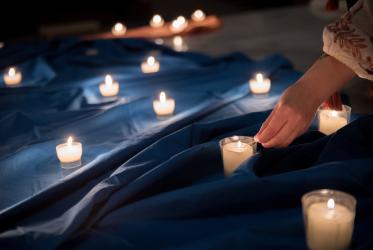Evangelical Lutheran Church in Congo (ELCCo)
(Eglise évangélique luthérienne au Congo, EELCo)
The Evangelical Lutheran Church in Congo(ELCCo), formerly Evangelical Lutheran Church of Zaïre, was founded in the early 1960s at the initiative of lay people who followed the Bible studies offered by the former Radio Voice of the Gospel in Addis Ababa, Ethiopia. Some congregations were opened, some committees established and the structure of the church was progressively formed. A young evangelist who, with three others, started the church, received his pastoral training at the Seminary of the Evangelical Lutheran Church in Tanzania (ELCT) in Makumira, Tanzania and asked the ELCT for support in 1968. Some Tanzanian pastors were sent to Zaïre to take care of the flock. The church was growing, and the number of pastors and evangelists increased. In 1980 the church was officially recognized by the state and registered as a non-profit making association. The church became a member of the Lutheran World Federation (LWF) in 1986.
Until 2002 the ELCCo was structured in nine ecclesiastical regions coinciding with nine administrative regions of the DR Congo in which it was represented, under one bishop. Because of the vastness of the country, the inefficient infrastructure of communication and the expansion of the ELCCo, it became already clear to the church leaders in 1996 that a reorganization was due. However the process was delayed because of the political circumstances in the country. In September 2002 the synod approved the restructuring of ELCCo into five dioceses as of 1 January 2003 and the election of four additional bishops. The new bishops were installed in November and December 2002. A presiding bishop was elected in February 2003 for a period of six years, renewable once. The national office in Lubumbashi, which is headed by the general secretary, has the task to coordinate and supervise the activities of the dioceses in order to guarantee the unity of EELCo.
Due to the political situation in the country it is very difficult to gather correct statistics concerning the number of church members. During the civil war and its aftermath many people were killed or uprooted. Many are still hiding in the bush without shelter, medical care and provisions, in fear of military aggressions and tribal wars. In the occupied areas at the borders of Uganda, Rwanda and Tanzania freedom of movement is hardly possible, and the situation is still unstable despite all the peace-talks.
Last updated: 1.1.2006





